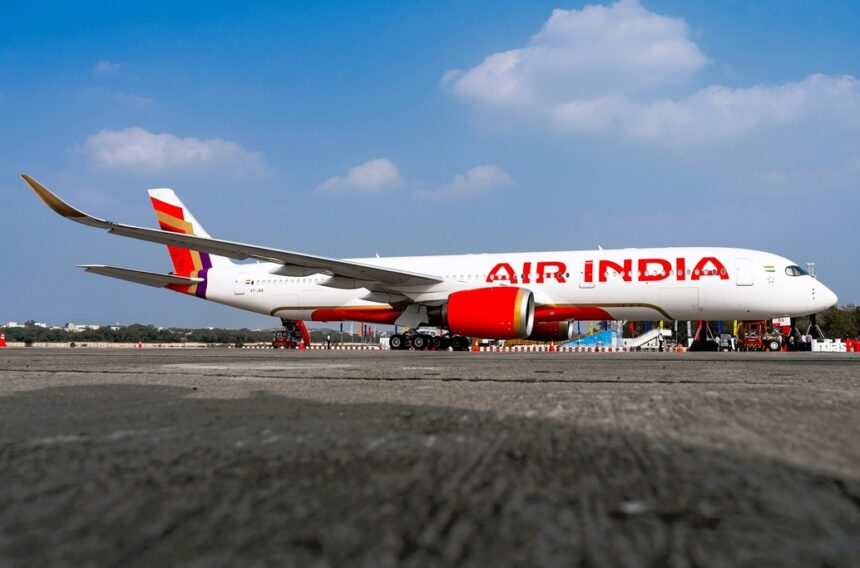The International Air Transport Association (IATA) has released data for May showing the continued weak performance for global air cargo.
The world demand for air cargo, measured in cargo tonne-kilometers (CTKs), fell by 5.2% compared to May 2022.
International decline and increased belly capacity
International operations experienced a slightly larger decline of 6.0%. However, there was an increase in capacity, as measured by available cargo tonne-kilometers (ACTKs), which rose by 14.5% compared to the previous year.
This increase in capacity was primarily driven by the recovery of demand in the passenger business, leading to an overall increase in belly capacity.
In fact, belly capacity in May 2023 was 5.9% higher than the levels seen in May 2019, before the COVID-19 pandemic.
Factors influencing decline
Several key factors influenced the decline in demand for air cargo. The global manufacturing Purchasing Managers Index (PMI) indicated an annual contraction of 1.4% in new export orders and a decrease of 5.2% year-on-year in production PMI.
These numbers suggest a cooling in global manufacturing demand, which directly affects the need for air cargo services.
[monsterinsights_popular_posts_inline]
Additionally, global goods trade decreased by 0.8% in April, mainly due to macroeconomic challenges and supply chain constraints.
Interestingly, container shipping demand contracted by only 0.2%, whereas air cargo demand weakened by 6.3% year-on-year, indicating a preference for maritime cargo in current trading conditions.
Furthermore, the global supplier delivery time PMI increased to 54.5 in May, showing shorter delivery times and some relief for supply chains. However, this also reflects weaker global goods trade demand.
Willie Walsh, the Director General of IATA, acknowledged the challenging trading conditions for air cargo with the decline in demand. However, he expressed optimism for improvements in the second half of the year.
As inflation moderates in many markets, it is expected that central banks will taper rate hikes, which should stimulate economic activity and positively impact the demand for air cargo.
Regional market breakdowns
Let’s now take a closer look at the performance breakdown of different regions in May 2023:
Asia-Pacific
Asia-Pacific airlines experienced a 3.3% decrease in air cargo volumes compared to May 2022. This decline in performance was more pronounced compared to April (-0.3%).
The main reason for this decrease was the stronger annual contraction in international air cargo demand, which went from -3.5% in April to -6.4% in May.
North America
North American carriers had the weakest performance among all regions for the third consecutive month. They saw an 8.1% decrease in cargo volumes in May 2023 compared to the same month in the previous year.
Europe
European carriers also faced a decline in cargo volumes, experiencing a 6.7% decrease in May 2023 compared to the same month in 2022. However, this was an improvement in performance compared to April (-7.7%).
The smaller annual contraction in international CTKs on the Europe-Middle East trade lane, from -4.7% in April to -2.9% in May, contributed to this improvement.
Middle East
Middle Eastern carriers saw a 3.1% year-on-year decrease in cargo volumes in May 2023. Although still a decline, this performance was slightly better than the previous month (-6.7%).
Latin America
Latin American carriers were the only region with positive performance in May 2023. They posted a 3.6% increase in cargo volumes compared to May 2022.
Africa
African airlines experienced a 2.4% decrease in demand compared to May 2022, indicating a decline in performance compared to the previous month (-0.9%).
Summary
The global air cargo market faced weak conditions in May 2023, with a decline in demand and various economic indicators pointing towards weakness.
Factors such as the contraction in global manufacturing demand and challenges in global goods trade contributed to this decline.
However, industry experts remain hopeful for improvements in the second half of the year as inflation moderates and stimulates economic activity.
It is crucial for air cargo companies to adapt and strategize effectively in order to navigate these challenging market conditions successfully.









